6 Tips to Manage the Restaurant Kitchen Efficiently
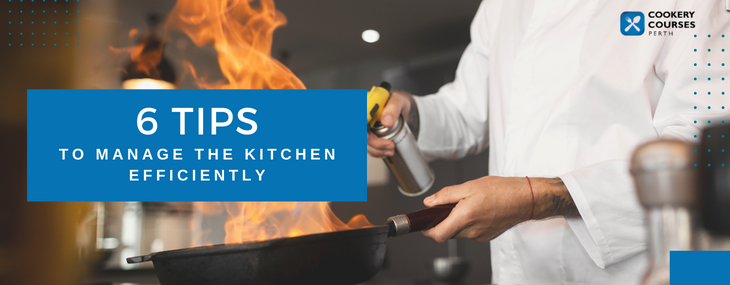
Enter the hectic realm of the kitchen, where the skill of remaining organised and cooking collide. It’s similar to performing a most difficult task, where coordination, ingredients, and time are all important factors.
Taking charge of a kitchen requires more than competence; it’s like making something unique amid everything else. Are you prepared to discover seven practical pointers that simplify kitchen management?
Join us professional cooking courses help you and provide answers in the below post.
Why Do You Need a Kitchen Manager?
A restaurant’s or food establishment’s ability to run effectively and efficiently depends heavily on the kitchen manager. They are crucial for upholding order, guaranteeing food safety, and maximizing overall kitchen performance.
Their duties go far beyond just supervising the kitchen workers, which goes beyond just becoming a chef. The qualifications needed to become a chef are very different from that of a Kitchen manager. Becoming a chef in Australia requires a professional degree, experience, and aptitude.
How To Manage the Kitchen Efficiently?
Becoming a chef and maintaining an effective kitchen operation is necessary for a successful and seamless culinary venture. First and foremost, careful organization and preparation are essential. Provide thorough kitchen staff schedules, including prep, cooking and cleaning. Tracking ingredient levels, averting shortages, and cutting down on waste are all made easier with an organized inventory system.
Some qualifications needed to become a chef include good communication and culinary skills. Establish open and transparent communication channels among kitchen personnel to promote a collaborative atmosphere. Regular staff meetings may solve issues, exchange ideas, and improve procedures.
1. Be an effective and willing administrator
Effective skills needed in the hospitality industry and willing administration are essential to the success of any organization. Take on tasks with vigour and show that you are proactive in making decisions and fixing problems. Prioritise assignments, allocate jobs effectively and delegate as needed to guarantee seamless operations.
Although a positive outlook promotes team cohesiveness and productivity, administrative success is enhanced by a commitment to learning and improving professionally to become a professional chef. Ultimately, your willingness and effectiveness make a big difference in any organization’s overall success.
2. Stay Calm under pressure
Becoming a chef in Australia is not that easy. One must have effective leadership and resilience and remain composed under duress. Keeping your cool under pressure enables more rational thought and well-informed strategic decision-making. Developing your emotional intelligence to handle stressful situations will give confidence to others working around you.
Engage in deep breathing exercises and mindfulness to reduce tension and maintain attention. Maintaining your composure protects your health and also creates a culture of stability and problem-solving throughout your team.
3. Be a perfectionist in every detail
Maintaining meticulous attention to detail will demonstrate your dedication to become a professional chef. It will also help produce quality work and remarkable outcomes. Focusing on even the slightest details of a work or project shows you are committed to excellence. This way of thinking guarantees accuracy and precision, and a well-executed end product makes you a great chef than you take professional cooking courses .
While striving for perfection takes time and energy, it also frequently boosts creativity and invention. Setting high expectations for both personal and professional success and elevating work standards by adopting a meticulous attitude in every aspect can help achieve long-term success.
4. Be experienced in your cooking style
Maintaining meticulous attention to detail demonstrates a dedication to quality work that produces remarkable outcomes. You must learn from professional cooking courses and focus on even the slightest details of a work or project, showing that you are committed to excellence. This way of thinking guarantees accuracy, precision, and a well-executed end product.
A culture of constant improvement is fostered by aiming for excellence, pushing limits, and going above and beyond. While striving for perfection takes time and energy, it also frequently boosts creativity and invention.
5. Be a good teacher
To become a professional chef and develop the next wave of culinary talent, one must be an excellent teacher. Give freely of your knowledge, conveying methods and the enthusiasm that fuels your love of cooking. Aspiring chefs should be encouraged to be curious and creative and given direction on the culinary career path.
6. Be a hard worker
Anyone who wants to become a chef needs to work hard and achieve Certificate iii in commercial cookery in Perth where the culinary scene is quite competitive. Aside from natural aptitude, getting the required credentials is essential. To lay a solid basis, pursue certified culinary programs and apprenticeships. Adopt a relentless work ethic since culinary surroundings are hard and need perseverance. Gaining promotion in the culinary industry requires a dedication to improving one’s abilities and becoming an expert in various cuisines.
Cookery Courses in Australia
Australian cooking classes provide a vibrant culinary education that embraces the many flavours and cooking styles of the nation to become a professional chef. These courses celebrate both history and creativity in Australian cuisine, offering hands-on learning opportunities and expert instructors.
Here is what one can expect from cookery courses in Australia:
- Culinary Diversity: Australia’s multicultural society is reflected in its cuisine, making it an ideal destination for international students.
- Quality Education: Renowned for its high standard of education, Australia offers top-notch culinary schools with state-of-the-art facilities.
- Industry Opportunities: With a thriving food and hospitality industry, international students can gain practical experience and networking opportunities through internships, part-time work, and exposure to local food events.
Certificate iii in Commercial Cookery Perth
To pursue an apprenticeship or traineeship, you must be employed under a training contract by a suitable organization.
Working full-time under an employer who allows you to master every facet of a trade is what an apprenticeship entails. This is a time-limited, organized program that includes both on-the-job training and off-the-job training.
Advantages of an apprenticeship are the following:
- Get paid while you learn
- Learn on-the-job skills in addition to off-the-job training;
- Upon successful completion, obtain a nationally recognized qualification;
- Begin a crucial step towards a fulfilling professional path.
Advanced Diploma in Cookery
It is designed for individuals who have completed lower-level qualifications in culinary arts or have relevant industry experience. During the one-year study of an Advanced Diploma in Cookery, candidates spend nearly 600 practical hours in the kitchen with skilled chef instructors.
The 601 hours of additional blended learning coursework for the Advanced Diploma in Professional Cookery aims to provide advanced skills and knowledge in various aspects of cookery, including menu planning, kitchen management, advanced cooking techniques, and culinary innovation.
Conclusion
Effective kitchen management is essential to the success of any culinary endeavour. Managing inventories, guaranteeing food safety, and maximizing overall kitchen performance are crucial responsibilities of a kitchen Manager, who goes beyond the scope of becoming a chef. Beyond the typical criteria for chefs, a kitchen manager must also possess expertise in inventory administration, vendor management, and menu planning.
This article offers six useful suggestions for efficient kitchen administration. To further improve one’s culinary skills, consider looking into professional cookery courses like the Certificate III in Commercial Cookery in Perth and the Advanced Diploma in Cookery.
Recent Post
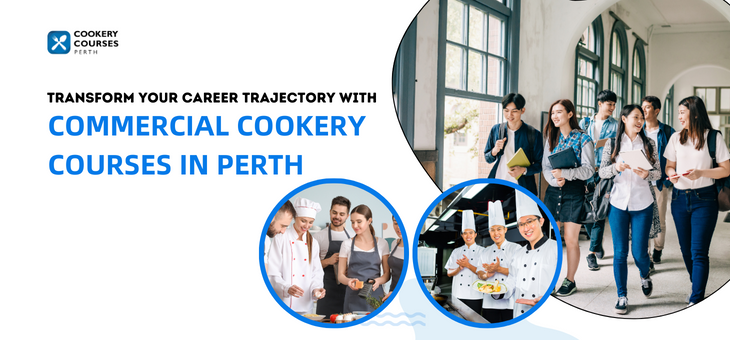
Transform Your Career Trajectory With Commercial C
Apr 04, 2024

Interesting Facts About Commercial Cookery Courses
Mar 04, 2024

6 Tips to Manage the Restaurant Kitchen Efficientl
Feb 06, 2024

Top Soft Skills Seeks In 2024 By Employers
Jan 15, 2024
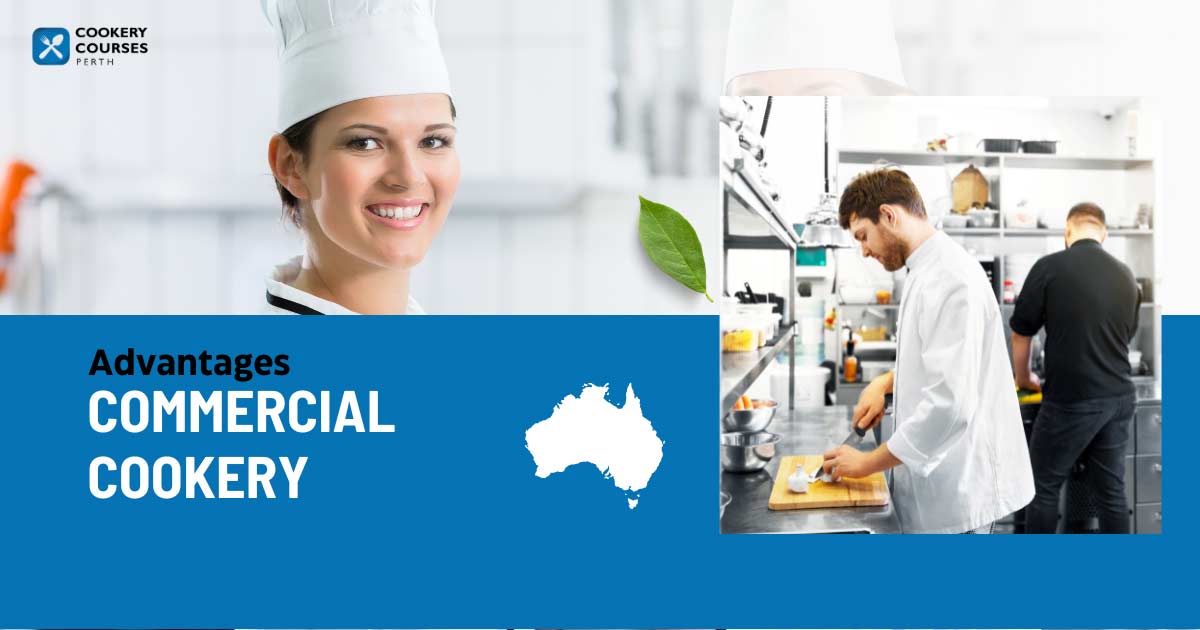
Advantages of a Commercial Cookery Certification
Dec 12, 2023

Nov 21, 2023

Transform Your Passion for Baking into a Flourishi
Nov 17, 2023
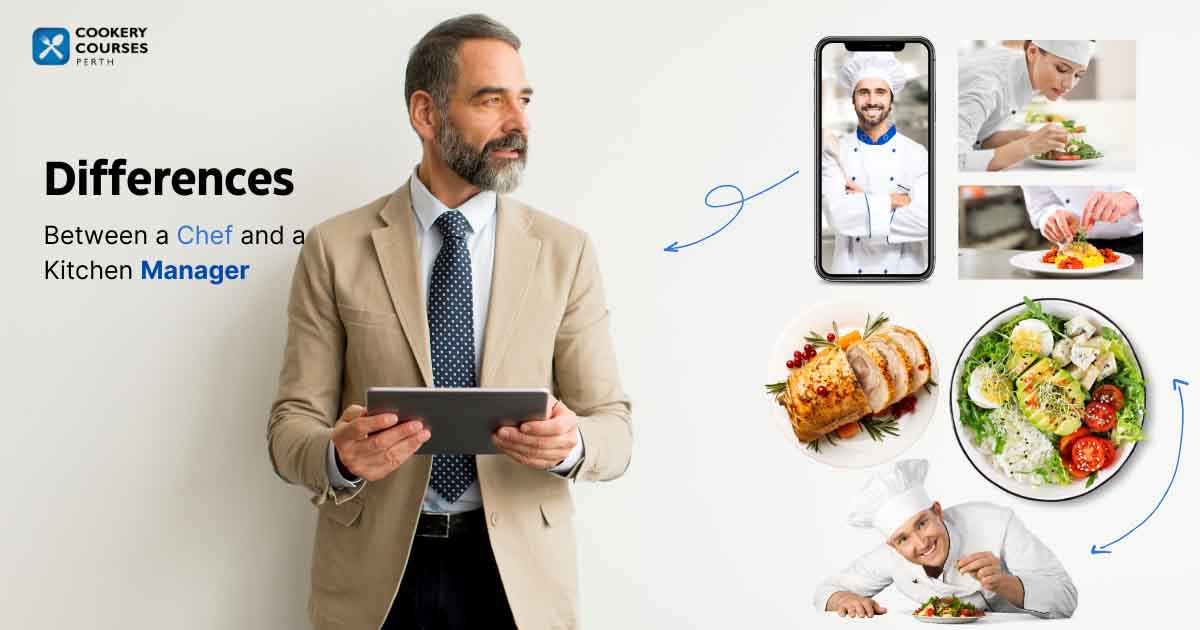
Distinguishing the Roles: Chef vs. Kitchen Manager
Sep 18, 2023

Starting a Food Business in Australia – Hire
Sep 04, 2023
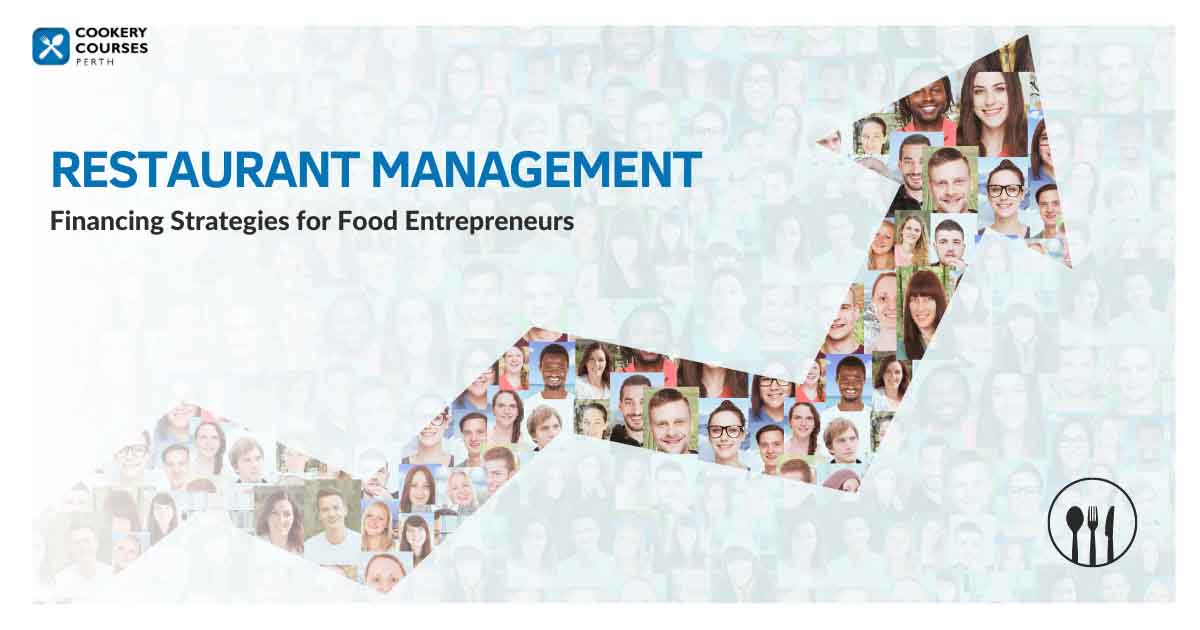
Financing Strategies for Food Entrepreneurs : Navi
Aug 22, 2023
CONTACT US
We are always happy to help out whatever way we can
